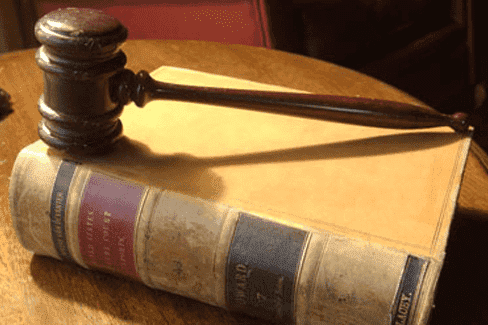
With the 1998 establishment of polygraph (Forensic Psychophysiology) standards by ASTM, polygraph has gained great strides in credibility with the scientific community. These standards, approved by a combined body of experts, now provide a template for the increased acceptability of polygraph results.
Contrary to popular belief, polygraph is not per-se inadmissible in court proceedings. Admissibility standards are different in each jurisdiction. Some jurisdictions allow polygraph evidence, either stipulated or un-stipulated, some prohibit polygraph evidence altogether, and many others allow the judge to decide admissibility on a case-by-case basis. In the United States, the Daubert case is presently the standard for the admission of scientific evidence, which includes polygraph, although some jurisdictions still rely on the older Frye standard. In reality, most polygraph results are used outside of the courtroom in pre-trial negotiations, plea bargaining, sentence recommendations, and witness verification or impeachment.
Civil and family courts are more flexible when allowing polygraph evidence, as the admissibility requirements in these venues do not need to meet the Daubert or Frye standards. Our examiners are available to assist with primary defense matters, appeals, new trial bids, sentencing issues, constitutional violations, and validation or impeachment of witnesses.
WHAT IS THE PROCESS?
Once an appointment has been scheduled, the examiner will communicate with the Defendant/Accused (or his/her attorney) to collect the necessary case information. Specifically, the examiner will need to know EXACTLY what the Defendant has been accused of, in very basic terms. For example, if the charges use terms like “homicide” or “murder,” the examiner will need more details, such as “the defendant is accused of stabbing the victim with a knife.” If the charges use terms like “sexual assault of a child,” the examiner will need more details, such as “the defendant is accused of touching the victim’s vagina with his hand.” The more details the examiners has, the better the questions can be constructed. Related documents, police reports, and witness statements can also be provided to the examiner.
At the time of the exam, the examiner will interview the Defendant about the allegations in a non-accusatory manner. Once the examiner has heard the defendant’s version of events, the appropriate test questions can be constructed to address the discrepancies. Following the exam, the Examiner will provide the Client with a detailed written report.
WHAT IF A POLYGRAPH IS REQUESTED BY LAW ENFORCEMENT?
Many law enforcement agencies use polygraph as a confession tool, and these agencies are permitted to tell a defendant that they failed a polygraph even when the test showed No Deception (or was inconclusive) in order to elicit a confession. In addition, law enforcement agencies often do not use the most up-to-date (and accurate) techniques for their exams. It is always recommended to have the exam done privately first, and then volunteer for a law enforcement exam ONLY upon the recommendation of the private examiner. Be sure to insist that the law enforcement examiner uses only APA Validated Testing Techniques and scoring methods.
TESTING OF VICTIMS & WITNESSES
While polygraph (lie detector) testing is used primarily for Suspects and Job Applicants, there are many occasions when a Victim or Witness will need to be tested. These types of exams are handled differently than most, primarily because the person being tested has not been accused or suspected of any wrongdoing. The exam is simply being used to verify that person’s version of events. Visit this LINK for more information.
CRIMINAL DEFENSE ASSISTANCE PROGRAM
Polygraph Exams are available for FREE at select testing locations for some defendants. The purpose of this program is to provide professional polygraph services to those who may not be able to afford this service, with the intent to aid the individual with his or her defense against serious criminal charges. Visit this LINK for more details.
IMPORTANT REFERENCE MATERIAL
Here is a link to our page about proper polygraph question design.
Click HERE for an explanation of test results.
For information about testing incarcerated persons click HERE.
For the most accurate results, learn how to prepare for a lie detector test by clicking HERE.
Click HERE for Reasons a person might fail a polygraph.
For information about using an interpreter for the exam, Click HERE.
For information about testing persons with disabilities, Click HERE.
Wrongfully convicted of a crime? We can help strengthen your appeal bid.
If the person to be tested is incarcerated in a jail, prison, or correctional institution, we can still provide this exam in most cases, but the exam will probably need to be coordinated through an attorney. Contact us directly for more information or for a price quote.
If necessary, we can refer you to experts able to testify to the scientific foundation and credibility of polygraph.
GPN can provide the following types of exams:
- Website Directory
- Lie Detector Test for Criminal Defense
- Polygraph Test for Criminal
- Lie Detector Test for Criminal Charges
- Lie Detector Test for Sexual Assault
- Polygraph Test for Sexual Assault
- Lie Detector Test for Child Abuse
- Lie Detector Test for Sexual Contact with Child
- Lie Detector Test for Child Pornography
- Lie Detector Test for Wrongful Conviction
- Polygraph Test for Wrongful Conviction
- Lie Detector Test for Murder
- Lie Detector Test for Assault
- Lie Detector Test for Theft
- Polygraph Test for Theft
- Lie Detector Test for Embezzlement
- Lie Detector Test for Rape
- Lie Detector Test for Arson
- Lie Detector Test for Robbery
- Lie Detector Test for Fraud
- Lie Detector Test for Property Damage
- Lie Detector Test for Drug Use
- Polygraph Test for Drugs
- Lie Detector Test for Drug Possession
- Lie Detector Test for Motor Vehicle Violations
- Lie Detector Test for DUI or DWI
- Lie Detector Test for Weapons Charges
- Lie Detector Test for Plea Bargaining
- Lie Detector Test for Sentence Adjustment
- Lie Detector Test for Immigration
- Lie Detector Test for Insurance Claims
Please contact us directly at info@polytest.org with any questions.
Michael Martin, President
Global Polygraph Network®

